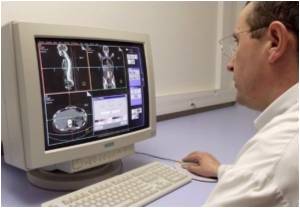The Irritable Bowel Syndrome (IBS) Awareness month is observed in April to increase awareness about the common bowel problem.
- The Irritable Bowel Syndrome (IBS) Awareness month is celebrated in the month of April
- Increased awareness can help patients understand what is happening to them and how to deal with the symptoms
- Medications as well as lifestyle changes can help control symptoms
- IBS causes symptoms like abdominal discomfort or pain, diarrhea and /or constipation, abdominal bloating, gas and urgency. Symptoms often appear after eating and the patients feel relieved after a bowel movement.
- The symptoms of irritable bowel syndrome (IBS) can be very similar to symptoms caused more serious bowel conditions including cancer. Therefore, your doctor may ask you to undergo tests like stool tests and colonoscopy to rule out other serious conditions, and only then may come to a diagnosis of irritable bowel syndrome (IBS).
- It is important not to suffer in silence, but to reach out for help. Though there is no definite cure for IBS, your doctor will suggest diet and lifestyle changes as well as medications to control your symptoms.
- Dietary changes can help to a large extent. You should maintain a diary, note down the foods that seem to worsen or reduce the symptoms, and accordingly make changes to your diet. Eat small frequent meals instead of large ones. If you suffer from constipation-predominant IBS, make sure that you do not skip your breakfast. Some people may benefit from reducing fiber intake in the diet, while others may benefit from increasing its intake. Caffeine, chocolate and nuts should be avoided.
- Probiotics can help to control symptoms. Probiotics contain good bacteria that help to settle your stomach. Peppermint oil in the form of capsules may also help. Your doctor will also prescribe medications to control your symptoms.
- Since IBS worsens with stress, relaxation can help you feel better. Unfortunately, it is easier said than done. Make sure you sleep well at night. Read a book or engage in some other activity that relaxes you before going to bed. You could practice relaxation techniques like yoga and incorporate that in your daily routine. Cognitive behavioral therapy may also be useful. Exercise regularly, especially if you suffer from constipation.
Reference:
- IBS Awareness Month Tips of the Day - (http://www.aboutibs.org/ibs-awareness-month/ibs-awareness-month-tips-of-the-day.html)
- Irritable Bowel Syndrome (IBS) - (https://www.niddk.nih.gov/health-information/digestive-diseases/irritable-bowel-syndrome/all-content)
Source-Medindia















